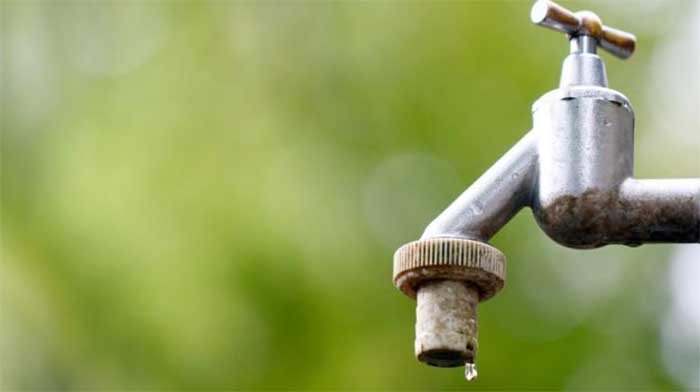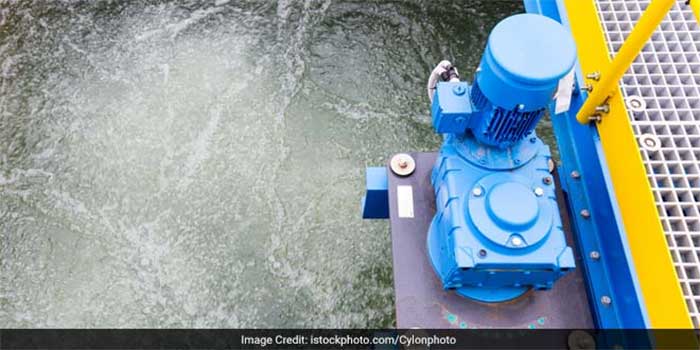Highlights
- Only 30 per cent of India's wastewater is recycled
- Wastewater recycling infrastructure and awareness are low in India
- India's water and sanitation sector is worth $420 million
India is the biggest consumer of freshwater in the world today, accounting for about 750 billion cubic metres annually, according to the World Bank. The World Bank has studied India’s rising water requirements extensively. But for a country which accounts for only 4 per cent of the world’s water resources despite hosting 17 per cent of the world’s population, the water crisis is a looming danger we should be wary of. The Central Pollution Control Board (CPCB) estimates that by 2030, India’s water demand is expected to rise to 1.5 trillion cubic metres. How can India bridge the divide between water haves and have nots? Lack of proper infrastructure and awareness with regard to wastewater recycling in India has resulted in over exploitation of India’s water resources and there are barely existent mechanisms on wastewater recycling.
Why Isn’t Wastewater Recycled in India?
In India, the awareness related to over exploitation of water resources has been very low. India has always been projected as a country with abundant water resources which is no longer the case. On the other hand, per capita availability of water in India has dwindled from 1,800 cubic metres per year in 2001 to an estimated 1,100 in 2050. Water used for sanitation purposes is rarely recycled in India’s urban areas. Wastewater recycling infrastructure in India’s urban spaces is neither properly financed nor designed, resulting in limited options for people to recycle wastewater.
Only 30 per cent of India’s wastewater is recycled. The apathy with regard to treatment of wastewater in India is visible from how its sewage systems have been designed. Most of urban India’s sewage systems lead directly to rivers or lakes. For example, in Delhi, 90 per cent of urban households have sewage systems which dump the wastewater directly into the Yamuna. Years of this practice has resulted in the Yamuna becoming one of the world’s most polluted rivers.
The concept of wastewater recycling in India was not much discussed about till the early 90s. The design of most Indian urban drainage systems is such that wastewater flows directly into a river or lake without treatment. Water is also mistakenly thought to be an endless natural resource, which is why its conservation or recycling was not been a part of our culture, said Dr. Narayan Hegde, Trustee and Principal Advisor, BAIF Development Research Foundation.
Challenges In Wastewater Recycling In India
The biggest challenge India faces is the cost of setting up of wastewater treatment plants and restructuring of sewerage systems. The Centre for Science and Environment estimates that Rs. 1 crore per million litres is the cost incurred to build a wastewater plant. Without adequate support from the government and private sector, urban and rural India will not be able to afford the building of such plants and would rather opt to discharge wastewater directly into water bodies.
The unavailability of land also acts as a common hindrance in the building of wastewater plants in India, especially in urban areas. Land is a highly expensive commodity in India, especially in urban India. Setting up a wastewater treatment plant requires land, acquiring which is difficult. Other challenges like continuous power supply, skilled labour force, adhering to environmental guidelines are consistent features in setting up of wastewater treatment plants.
Wastewater recycling is a huge challenge in India as we have been at least two decades late in thinking about it. Nearly 70 per cent of India’s wastewater goes directly into rivers and lakes. Instead of traditional setting up of wastewater plants, what we should now look at alternative methods of wastewater recycling which doesn’t burden the economy, said Vedika Bhandarkar, Managing Director (India), Water.org
The Changing Scenario
Though low compared to global standards, India has been investing in wastewater treatment since 2004. With increase in both rural and urban sanitation coverage under the Swachh Bharat Abhiyan since 2014, a number of private corporations are taking increased interest in the sector of sanitation and wastewater recycling. The World Bank estimates that India’s total water and sanitation sector is worth $420 million, with an annual growth rate of 18 per cent. Investments in this sector by private corporations could see the growth of small organisations associating themselves with wastewater collection, redirecting of wastewater to treatment plants and transportation of wastewater from remote locations to treatment plants. Doing so would strengthen both the entrepreneurial outlook in rural and urban India, as well as address the issue of wastewater management.
The Swachh Bharat Abhiyan has played a crucial role in addressing the issue of wastewater treatment. The mission has laid stress on the development of indigenous technologies and has roped in experts from Gujarat Technological University and Bhabha Atomic Research Centre (BARC) to conduct research on how low cost technologies to treat wastewater can be developed. The mission has also stressed on Radiation Hygienisation, a process in which wastewater from households is hygienised using gamma radiation and the water is made fit for industrial or household usage other than consumption.
The Swachh Bharat mission has also focused on the issue of wastewater and steps are being taken to improve the quality and quantity of water recycled. The number of toilets being built will increase the amount of wastewater generated. A proper mechanism, if in place, can ensure that we are well-equipped to deal with the problem of wastewater, said Arunangshu Mukherjee, Member Secretary, Ministry of Water Resources.
A number of organisations like Xylem India, Jaldhara Technologies, Wabag etc. have been engaged in providing sustainable solutions for wastewater treatment. Wabag has been instrumental in building the first plant for recycling of wastewater to drinking water in Namibia and plans to replicate the same in India as well. A full scale implementation of such models in India will reduce the over usage of India’s water resources for drinking purposes.
Also Read: Recycling and Reusing Wastewater Can Solve Global Water Crisis: UN































8375000203
November 26, 2018 at 1:09 am
hello sir or mam
I am hitesh from delhi want to start my NGO specifically on Pollution but not getting the information & resource how start it.
I know that would be most strived step in my life but i want to that for the country.
kindly help, I will be very grateful if you will reply.
Name-hitesh